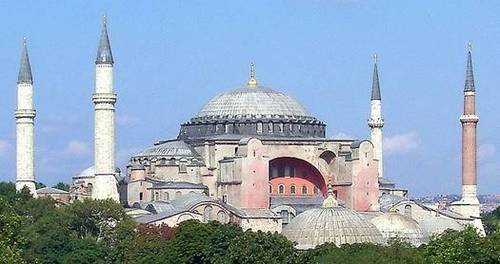Recently the Turkish Cultural Center in New York held a panel discussion on whether coexistence is possible between religious and secular forces in the Muslim world.
What surprised this writer was data collected from a new Gallup Poll suggests that secularism is more popular in Islamic-majority Turkey than Christian-majority America.
I was also startled that theocracy -- government rule based on religious tenet -- enjoys an equal level of support in the U.S. as it does Turkey. Luckily for democracy, this is less than 10% in either country.
Gallup poll findings in the U.S. show 44% say the Bible should not be a source of legislation. Likewise, 57% of Turks say the Koran should not be a source of law in Turkey. 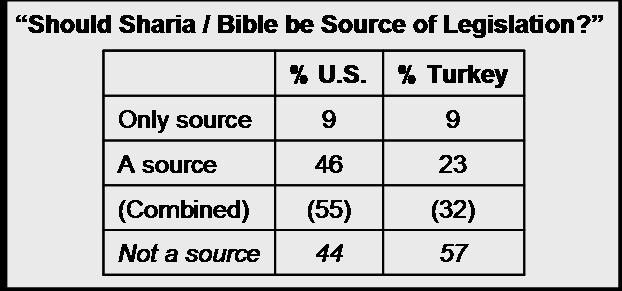
Moderation wins. Turkish respondents, 23% of them, felt that Sharia could play some role, but not an exclusive role, in government. About twice as many Americans, 46%, felt that Christianity should have an impact on our nation's laws.
But if you combine the data -- "only source" and "a source" -- you find a disturbing fact: the majority of Americans are more comfortable with some sort of Christian-based legislation than the people of Turkey are willing to accept some sort of Islamic-based legislation.
 A small number of Americans -- 9% --want Bible-based law.
A small number of Americans -- 9% --want Bible-based law.
In the U.S., a combined 55% are willing to accept a Christian nation at some level vs. 44% who reject it, whereas in Turkey a combined 32% appreciate Islamic influence in government vs. 57% who reject it.
The panel discussion was led by Dr. Ahmet Kuru, assistant director of the Center for Democracy, Toleration and Religion at Columbia University. I was pleased to note that his institute is generously funded by the Henry Luce Foundation.
Magali Rheault, senior analyst with the Gallup Center for Muslim Studies, discussed key Gallup Poll findings on religion around the world, and specifically religious beliefs in Turkey.
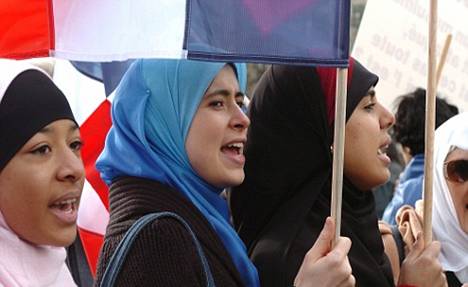 Muslim protests in France over Islamic headscarf ban.
Muslim protests in France over Islamic headscarf ban.
The event occurred the same day president Barack Obama delivered his seminal speech on U.S.-Muslim relations at Cairo University in Egypt.
Turkey's theology is being examined closely by Europe as this nation's candidacy for joining the European Union is debated.
Europe can stop worrying: Turkey is far more secular (57%) than the U.S. (44%).
Historically, it makes sense that this European-Asian nation is so secular. Turkey is the world's first secular Muslim nation and the first Muslim member of NATO.
The U.S. was founded by Protestant Puritans and despite its Roman Catholic, Jewish and Muslim minorities, still maintains a majority (55%) comfortable with some degree of Christian rule.
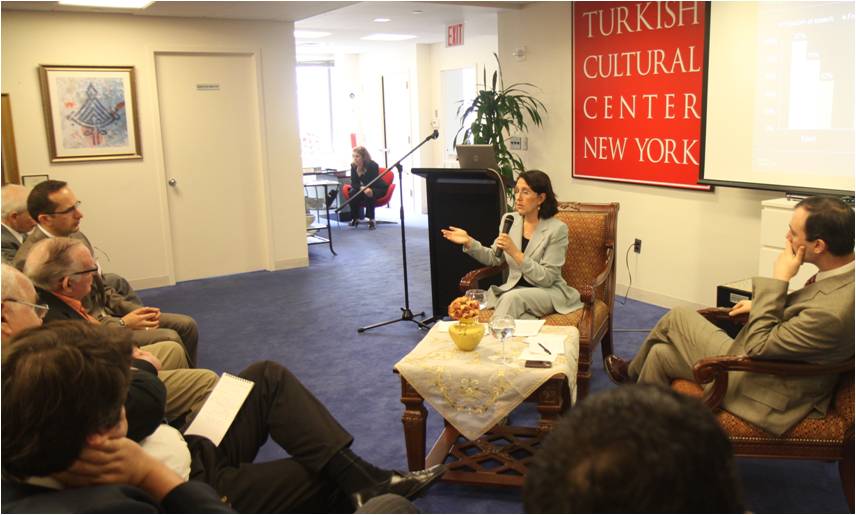 Magali Rheault presented findings as Ahmet Kuru moderated panel.
Magali Rheault presented findings as Ahmet Kuru moderated panel.
The founder of the Republic of Turkey was Mustafa Kemal Ataturk. He led the former Ottoman Empire into a modern, democratic and secular nation-state.
President Ataturk is one of the global heroes presented to the children of my global network of orphanages, Orphans International Worldwide, for his brilliance and compassion.
The topic of Islam itself is deeply fascinating, with more than one billion Muslims living across the globe. Magali noted Muslims are often discussed, but seldom heard.
The purpose for the Gallup Center for Muslim Studies is, founded long after Dr. Gallup's passing, still echoes his desires "To seek the wisdom of the people."
Since inception, The Gallup Poll has used systematic methodology to read the will of the people, a step required in a democracy, Gallup believed.
As Ahmet stressed, today, there are 46 Muslim-majority nations out of 194. Twenty of these are secular states, 15 come out on middle ground, and 11 are firmly grounded in Sharia - that complex body of rules that govern all life is orthodox Islam.
Although I have visited Turkey frequently, I know Indonesia far better, having founded two orphanages there through Orphans International Worldwide.
Theologically, Turkey is similar to Indonesia. Both nations have Muslim majorities, yet neither nation is bound to a Quranic constitution.
I have lived and traveled in regions where Sharia law exists such as in Aceh. Regions where I could be punished for eating or drinking what I want, or killed for expressing my thoughts or sexuality.
The panel was most informative. I was reminded by Gallup data of what I had intuitively felt: The population of Iran is far less fanatical than its Holocaust-denying leadership. That struck me as very hopeful.
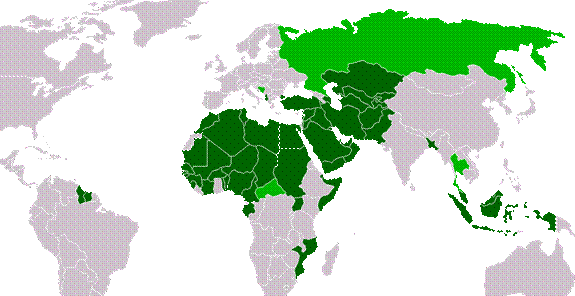 Member nations of the Organization of the Islamic Conference (OIC).
Member nations of the Organization of the Islamic Conference (OIC).
The moderator pointed out that there are vastly different Islamic experiences for Muslims in Europe, the Mid East, Asia, Africa, and North America.
My take-away from this panel was the importance of moderation.
Over the years, I have realized that the fundamentalist mindset -- a way of seeing the world in black and white, right and wrong, good and evil -- is not an Islamic trait but rather a terrible and tragic human trait.
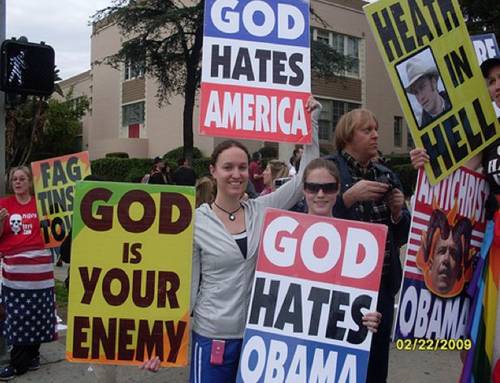 Kansas-based Christian protestors at the Oscars.
Kansas-based Christian protestors at the Oscars.
Religion plays an important role in society, whether Turkish Muslim or American Christian, Tamil Hindu or Israeli Jew. Our enemy is extremism and intolerance. Sadly, anyone of any ideology can become extreme.
Our ability to identify such extremism and intolerance as the roadblock to peace brings us a step closer to being able to eliminate it.
The Gallup Poll and think tanks at universities such as Columbia University help us to better understand and deal with the world around us.
I thank Magali and Ahmet for their important work with the Gallup Center for Muslim Studies and Center for Democracy, Toleration and Religion at Columbia University, respectively, and the Turkish Cultural Center in New York.
Sharing research with readers globally is vitally important for us to realize our commonalities.
